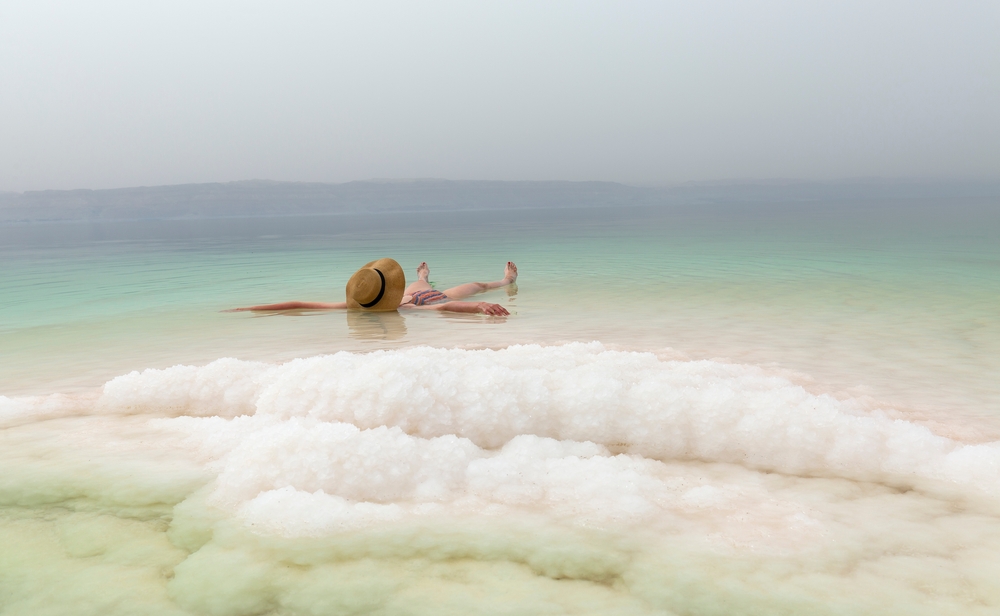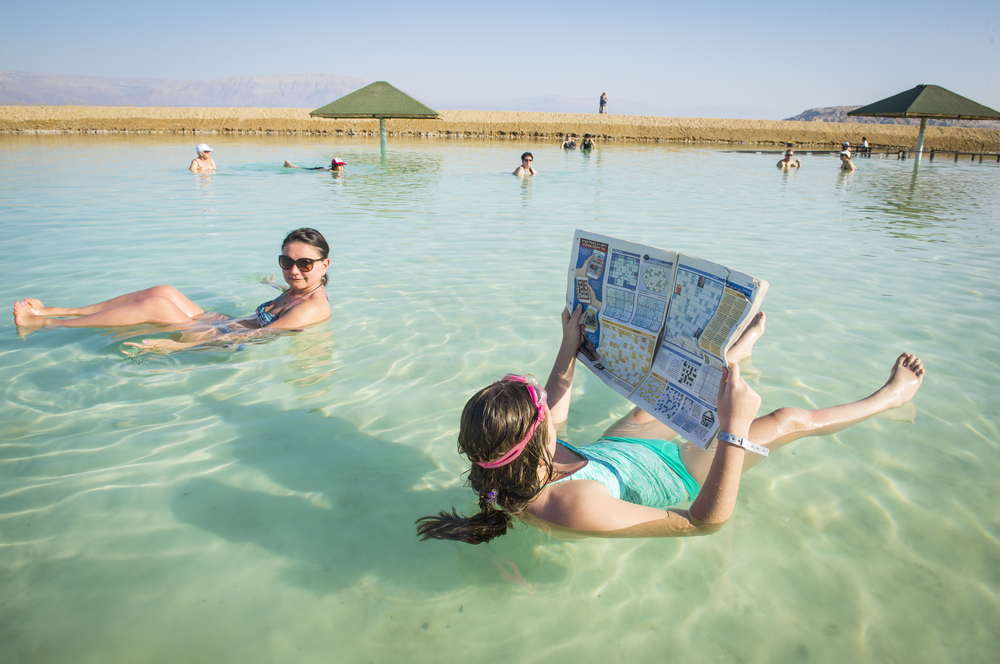Is Floating in the Dead Sea Safe? What You Need to Know

Picture this: You're floating effortlessly on the surface of the water, the sun shining down, and the salty air of the desert surrounding you. There's no sinking, no swimming—just floating in the Dead Sea, one of the most unique experiences on Earth. But with its high salinity and mineral-rich waters, you may wonder, is floating in the Dead Sea safe?
If you're planning to visit Israel, floating in the Dead Sea should be on your bucket list. This natural wonder is unlike any body of water you've ever encountered, and with the right guidance, it can be a perfectly safe and unforgettable experience. To help you make the most of your visit, Gray Line Israel offers guided tours that ensure you get to experience this ancient marvel with ease and confidence. Let’s dive into the details and explore everything you need to know about floating in the Dead Sea and why booking with Gray Line Israel makes it even better!
Is Floating in the Dead Sea Safe? What You Need to Know

The Dead Sea is a saltwater lake bordered by Jordan, Israel, and Palestine, sitting at the lowest point on Earth—more than 400 meters below sea level. Its high salt concentration makes it impossible for most forms of life to thrive in the water, which is how it got its “Dead Sea” moniker. The water is rich in minerals like magnesium, calcium, and potassium, making it famous not only for its buoyancy but also for its healing properties.
The question remains: is it safe to float in the Dead Sea? The short answer is: yes, floating in the Dead Sea is safe, but there are important considerations to keep in mind before you take the plunge.
Why is Floating in the Dead Sea Safe?
The Dead Sea's salinity—about 30%—is far higher than most seas, making the water denser and easier to float in. This means that unlike swimming in a regular body of water, you’ll barely have to exert any effort to keep yourself afloat. It’s a completely unique sensation and one of the reasons people flock to the Dead Sea from all over the world.
However, the high salt content comes with its own set of precautions. The salt in the water can be very harsh on your skin, and if you have any open cuts, scratches, or sensitive areas, it can sting. It’s also important to avoid getting the water in your eyes—this can be painful due to the extreme salt levels. For those with sensitive skin, it’s advised to limit the time spent in the water and rinse off afterward with fresh water.
While the Dead Sea’s waters are generally safe for adults, it’s not recommended for young children to float in the Dead Sea without supervision. The water’s density and salt concentration could cause them to feel overwhelmed or disoriented.
Potential Health Benefits
Despite these precautions, the Dead Sea is widely recognized for its therapeutic benefits. The high mineral content in the water is said to improve skin conditions like psoriasis, eczema, and acne, thanks to the healing properties of minerals like magnesium and calcium. Many people find that spending time in the Dead Sea helps rejuvenate their skin, reduce stress, and even alleviate some joint pain.
So, while floating in the Dead Sea is safe, it’s not just fun and relaxing—it can be great for your body and mind too!
Why Choose a Guided Tour with Gray Line Israel?
Now that you’re confident that floating in the Dead Sea is safe, you might be wondering how to make the most of this experience. That's where Gray Line Israel comes in. With expert-led tours, transportation, and all the necessary logistics taken care of, you can focus on enjoying the wonders of the Dead Sea without worrying about the details.
Expert Guides
When you book a tour with Gray Line Israel, you get more than just a ride to the Dead Sea. Their knowledgeable guides offer insights into the history, geography, and significance of the region. The Dead Sea is surrounded by a wealth of fascinating stories, from its ancient connections to biblical history to its role in the development of the modern world. With a Gray Line Israel guide, you’ll learn all about the unique features of the Dead Sea and its place in the larger context of Israel’s history.
Convenient Transportation
One of the biggest advantages of booking a tour with Gray Line Israel is the convenience of transportation. The Dead Sea is located in a relatively remote area, and driving there on your own might seem daunting. With Gray Line Israel, you don’t have to worry about navigating unfamiliar roads or finding parking. Their comfortable, air-conditioned touring vehicles provide a hassle-free way to get to and from the Dead Sea, allowing you to relax and enjoy the journey.
Best Time to Visit
Ideal Seasons
The best time to visit the Dead Sea is during the cooler months of the year, particularly spring (March to May) and fall (September to November). The summer months in Israel can be scorching, with temperatures easily exceeding 100°F (38°C), so visiting the Dead Sea during these seasons will provide a more comfortable experience.
If you choose to visit in the summer, be prepared for the heat. Even though the water is cool and refreshing, the surrounding desert climate can be intense. Early mornings or late afternoons are the best times to visit during this season, as the sun is less intense, and the crowds are smaller.
Travel Tips & Recommendations
Before you head off to the Dead Sea, here are a few tips to make your experience more enjoyable:
- Don’t Shave Before Your Visit: The salt in the Dead Sea water can sting, especially if you’ve shaved recently. To avoid discomfort, try to schedule your visit a day or two after shaving.
- Avoid Getting Water in Your Eyes: The salt concentration is so high that it can be extremely painful if it gets into your eyes. Keep your face above the water, or be sure to wear sunglasses or swim goggles if you’re concerned about irritation.
- Wear Flip-Flops or Water Shoes: The mud around the edges of the Dead Sea can be slippery and sharp, so wearing water shoes or flip-flops is a good idea.
- Rinse Off After Floating: After floating in the Dead Sea, rinse off the salt and mineral residue with fresh water to prevent your skin from drying out.
- Bring a Towel and Extra Clothes: You’ll definitely want a towel to dry off and a change of clothes to feel comfortable after your float.
Conclusion
Floating in the Dead Sea is an experience like no other, offering a chance to relax, rejuvenate, and enjoy the therapeutic benefits of one of the world’s most unique natural wonders. While there are a few safety precautions to consider, overall, it’s a safe and incredible experience that you won’t want to miss on your trip to Israel.
Booking a guided tour with Gray Line Israel ensures a seamless, stress-free journey to the Dead Sea. From expert guides to comfortable transportation and exclusive experiences, they make your trip to the Dead Sea unforgettable. Ready to float in the Dead Sea? Gray Line Israel is your ticket to this once-in-a-lifetime experience—book your tour today!
Take a look at some of the different options available:













